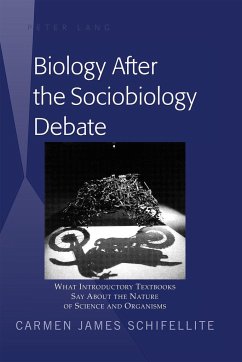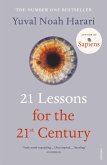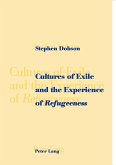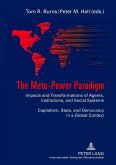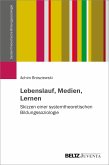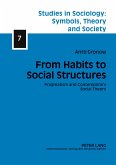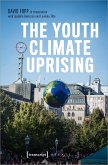This book analyzes the sociobiology debate and details a number of contested issues that have emerged. These issues focus on the interpretations and emphases that both sides have placed on the role of adaptation in evolution; the importance of evolution at the level of the gene versus at the level of organisms and populations; reductionism as a research method; simple Mendelianism versus more complex understandings of the relationship between genotype and phenotype; and ultimately, the nature of science itself.
The book includes textual analyses of a selection of university-level introductory biology textbooks written between 1990 and 2010, examining the ways these texts - with their photos, inserts, and various rhetorical devices - cover sociobiology specifically, and animal behavior in general; evolutionary theory; genetic theory; and the nature of science.
Biology After the Sociobiology Debate shows how, over the last two decades, sociobiology and the ensuing debates have influenced biological theory about the natures of science and the behavior of organisms, and how that influence is expressed in introductory textbooks. This book is important not just as a sociology of knowledge study, but also because of the ways in which continued biodeterminist discourses may influence debates and policy that are emerging around a new liberal or consumer-based eugenics movement.
The book includes textual analyses of a selection of university-level introductory biology textbooks written between 1990 and 2010, examining the ways these texts - with their photos, inserts, and various rhetorical devices - cover sociobiology specifically, and animal behavior in general; evolutionary theory; genetic theory; and the nature of science.
Biology After the Sociobiology Debate shows how, over the last two decades, sociobiology and the ensuing debates have influenced biological theory about the natures of science and the behavior of organisms, and how that influence is expressed in introductory textbooks. This book is important not just as a sociology of knowledge study, but also because of the ways in which continued biodeterminist discourses may influence debates and policy that are emerging around a new liberal or consumer-based eugenics movement.
"Carmen James Schifellite has produced a remarkably suggestive study of the way(s) in which sociobiology, a newly christened field in 1975, became incorporated into mainstream college biology textbooks and curriculum. (He) has done a marvelous job of integrating a variety of issues surrounding sociobiology and its critics [...] A must read for all biologists, textbook authors, and educators." (Garland E. Allen, Professor of Biology, Washington University in St. Louis)
"An insightful account of the social construction of the increasingly popular and pervasive paradigm of sociobiology. Dr. Schifellite's critical analysis [...] should be read not only by biology teachers, but anyone concerned about misleadingly reductive explanations of human behavior." (D. W. Livingstone, Canada Research Chair in Lifelong Learning and Work; Professor Emeritus, Department of Sociology and Equity Studies OISE/UT, University of Toronto)
"How does a scientific field of study develop, establish legitimacy, defend its truth claims against those who would contest them, and change over time? And how are the complexities of these changing claims and contestations best translated into scientific textbooks? Carmen James Schifellite engages these questions in his impressive account of the development of sociobiology and its successor sciences [...] This is a must read for anyone who cares about the quality of scientific debate and wishes to read or write scientific texts intelligently." (Susan McKinnon, Professor of Anthropology, University of Virginia)
"Carmen James Schifellite deftly takes the reader below the surface of a scientific controversy so that a higher level of intellectual discourse can take place within and about biology textbooks and beyond. A remarkably rich theoretical and practical book for biologists, sociologists, and educators." (John Novak, Professor of Education, Graduate and Undergraduate Program, Faculty of Education, Brock University)
"An insightful account of the social construction of the increasingly popular and pervasive paradigm of sociobiology. Dr. Schifellite's critical analysis [...] should be read not only by biology teachers, but anyone concerned about misleadingly reductive explanations of human behavior." (D. W. Livingstone, Canada Research Chair in Lifelong Learning and Work; Professor Emeritus, Department of Sociology and Equity Studies OISE/UT, University of Toronto)
"How does a scientific field of study develop, establish legitimacy, defend its truth claims against those who would contest them, and change over time? And how are the complexities of these changing claims and contestations best translated into scientific textbooks? Carmen James Schifellite engages these questions in his impressive account of the development of sociobiology and its successor sciences [...] This is a must read for anyone who cares about the quality of scientific debate and wishes to read or write scientific texts intelligently." (Susan McKinnon, Professor of Anthropology, University of Virginia)
"Carmen James Schifellite deftly takes the reader below the surface of a scientific controversy so that a higher level of intellectual discourse can take place within and about biology textbooks and beyond. A remarkably rich theoretical and practical book for biologists, sociologists, and educators." (John Novak, Professor of Education, Graduate and Undergraduate Program, Faculty of Education, Brock University)

